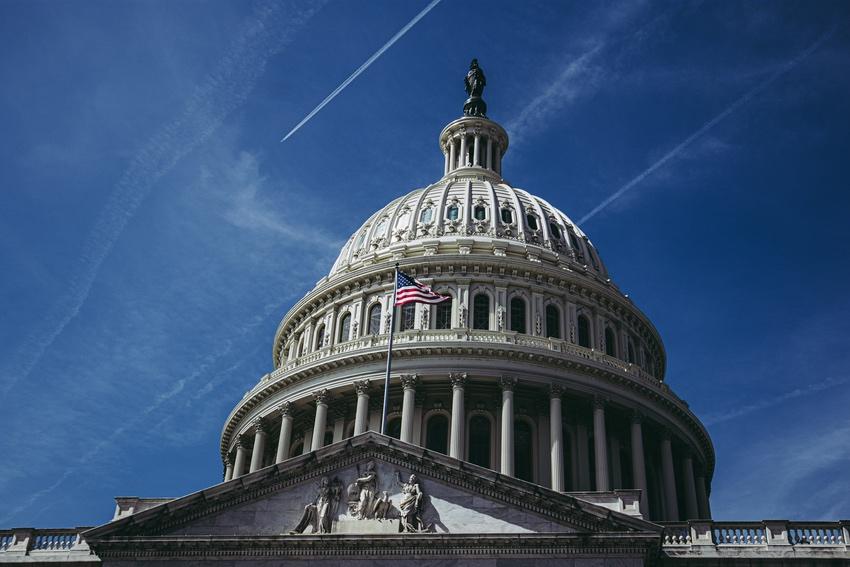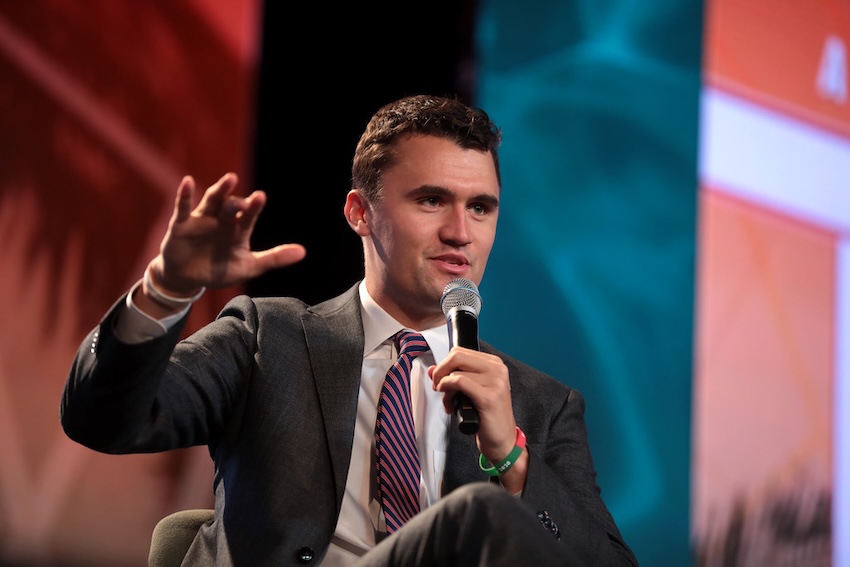Presidential election draws near, candidates promote platforms

With the 2020 presidential election drawing closer, Nov. 3, many citizens sense the divide between the Republican and Democratic parties. From superintendents to local political leaders, multiple views on the origins of the divide, and how to fix it, exist.
From the original 1,056 candidates who filed to run to the last three presidential candidates considered “notable” by Ballotpedia, the Democratic National Convention and Republican National Convention will soon determine the final two candidates.
President Donald Trump (R), Joe Biden (D) and Bernie Sanders (I) face the republican and democratic primaries and caucuses occurring by state and territory to narrow down candidates for the race.
Despite only 46.1 percent of citizens ages 18-29 voting in the 2016 election, presidential elections impact them regardless. With all of Fresno Christian High School’s population able to vote in the 2024 presidential election, FCS Superintendent Jeremy Brown shares why students should seek knowledge and wisdom in politics.
“Involvement starts with listening,” Brown said. “There is a big difference between knowledge and wisdom. Knowledge is information and wisdom is knowing what to do with it. It is important to ask a lot of questions, listen and then to process. This requires having an open mind. Lastly, what are you anchored on? I screen everything through God’s word.”
Serving as FCS’s superintendent for the last six years, Brown recognizes the divide between parties and encourages actively finding common ground with others.
“I feel like the focus of all politics is about separation,” Brown said. “All of the political parties, yes, I mean all, focus on differentiating themselves from others. And there is some merit in that but what has happened is that there is not focus on common ground or on what we have in common. My take on politics may be over simplified, I don’t care what you’re against; I care what you are for.”
A registered voter and republican, FC parent and Feather blogger Silva Emerian lists fighting abortion as one of her top priorities right now. Sharing that she feels there is no “perfect” candidate for her, Emerian explains why she votes in accordance with a candidate’s policies as opposed to their character.
“I have to vote in accordance with proposed policies because candidates have proven that they cannot be trusted,” Emerian said. “It does not matter which side of the line they’re on. Everyone has a good and bad side, but I have to be practical and realistic when I consider my voting options. Idealism is not very useful; knowing policies and platforms and being informed is what helps me vote one way or the other.”

On the other hand, Ben Vaipan, ‘20, explains why he cares about a candidate’s actions, not their beliefs. Planning on voting for President Trump, Vaipan feels that the president upholds values he agrees with, such as freedom of religion, Judeo-Christian values, the value of the sanctity of life, and allowing the free market to thrive.
“To be entirely honest,” Vaipan said, “I don’t really care about what a candidate believes; I care what they do. Let me explain this. If someone is racist, by racist I mean someone who actually believes that other races are inferior to their race purely because they are not his or her race, but still treats everyone equally and fairly, this person would still make a good leader.”
While each candidates differs from the others, they each run on a platform expressing their views. Aiming for reelection, President Trump’s website explains his main goal, and motto, is “America first”, which includes actions such as lowering taxes, replacing and repealing Obamacare and securing borders.
Sanders hopes to institute a “21st Century Economic Bill of Rights” that guarantees what he deems the basic necessities of life regardless of income, race, religion, gender, country of origin or sexual orientation.
As the other democratic candidate, Biden envisions rebuilding what he calls the “backbone of America”: the middle class.
The first female president of Fresno County Young Democrats and a political organizer for SEIU-United Healthcare Workers, Clara Varner shares how she feels good policies and good character come together. Varner aims to use her experience interning in political campaigns for those such as Kamala Harris and Gavin Newsom to create change in Fresno.
“If you have a good character then you have good policies, in my opinion,” Varner said. “I’ve met some very kind Republicans but if their policies are hurting other people, then I have to question their character. I usually don’t trust politicians but their character helps me gauge how much I can trust them.”
Already crossing the limitations to secure the Republican nomination, President Trump won 1,301 of the pledged delegates while withdrawn candidate Bill Weld won one.
On the other hand, seven Democratic nominees, five withdrawn and two active, have won democratic delegates. Although neither reached the 1,991 delegates required to secure the democratic nomination, Biden and Sanders lead with 1,215 and 910 delegates, respectively.
The following tweet from the New York Times features an opinion piece sharing Poland’s publications’ efforts to reduce political polarization.
Political polarization is spreading around the world. Poland has been a major example. But now five Polish publications are trying to reduce it by sharing articles from their different perspectives on the political spectrum. https://t.co/eX7GydEQvC
— New York Times Opinion (@nytopinion) January 29, 2019
Classifying healthcare as a natural right, the gender wage gap and diversity for those in power as her top issues in politics, senior Claire Palsgaard disclosed that she plans on voting for the democratic candidate. Sensing the divide between political parties, Palsgaard shares where she feels the gap stems from.
“There is a huge divide right now between the parties,” Palsgaard said. “I think it’s because of the media exaggerating situations and people having these unrealistic stereotypical views of either Democrats or Republicans. I think we can fix that by being kind and respectful to everyone no matter what they believe.”
In a contrasting view, Vaipan shares how the idea of closing the divide between parties causes various other questions to arise. Vaipan poses a different way to fix the gap that he feels might be positive for the US.
“To assume that ‘the gap’ should be fixed, you imply that the gap is a problem,” Vaipan said. “This would also imply that one, or both, parties is wrong. So to close the gap in a way that would benefit America, the wrong party, or parties, would have to acknowledge where they are wrong, and correct it. If all the flaws in politics are removed, then I think this gap would be closed and it would even be beneficial to America.”
Although many citizens recognize the gap between parties, the US House of Representatives recently passed a bipartisan stimulus package named CARES (Coronavirus Aid, Relief and Economic Security). Passed with the quorum of 216 members, the package provides additional funds for aid such as unemployment benefits, business loans and grants and direct cash payments.

Crediting the political gap to President Trump, Varner views him as sexist and racist. Although she describes the political climate in America as “divisive,” she explains how she feels it can be fixed.
“The first step is to ensure that Trump does not win,” Varner said. “The second step is to come together and work across the aisle to get things done.”
In spite of the gap, Emerian urges leaders and citizens alike to aim for connectivity in fighting national problems.
“Ideally, we would find ways to work together across party lines,” Emerian said. “I wish we could find common ground, more things that we agree on. There are so many basic needs in this country, children going hungry, homeless veterans, things that we should be able to come together to correct to elevate our nation.”
Sharing some of his last thoughts on the gap between parties, Brown recognizes the importance of unity while encouraging others to identify what they support, not what they oppose.
“My take on politics may be over simplified,” Brown said. “I don’t care what you’re against; I care what you are for. You can see this happening within political parties. I am wary of it. I think our country is getting that way also…I pray that a spirit of unity comes over our nation. Not conformity but unity.”
For more articles, read A look inside California’s electrical grid or COLUMN: Richie Cortez, seniors discuss adjustments to ‘stay-in-place’.





Jeremy Brown • Apr 13, 2020 at 11:43 am
Great article and a very important topic, well done Vijay!